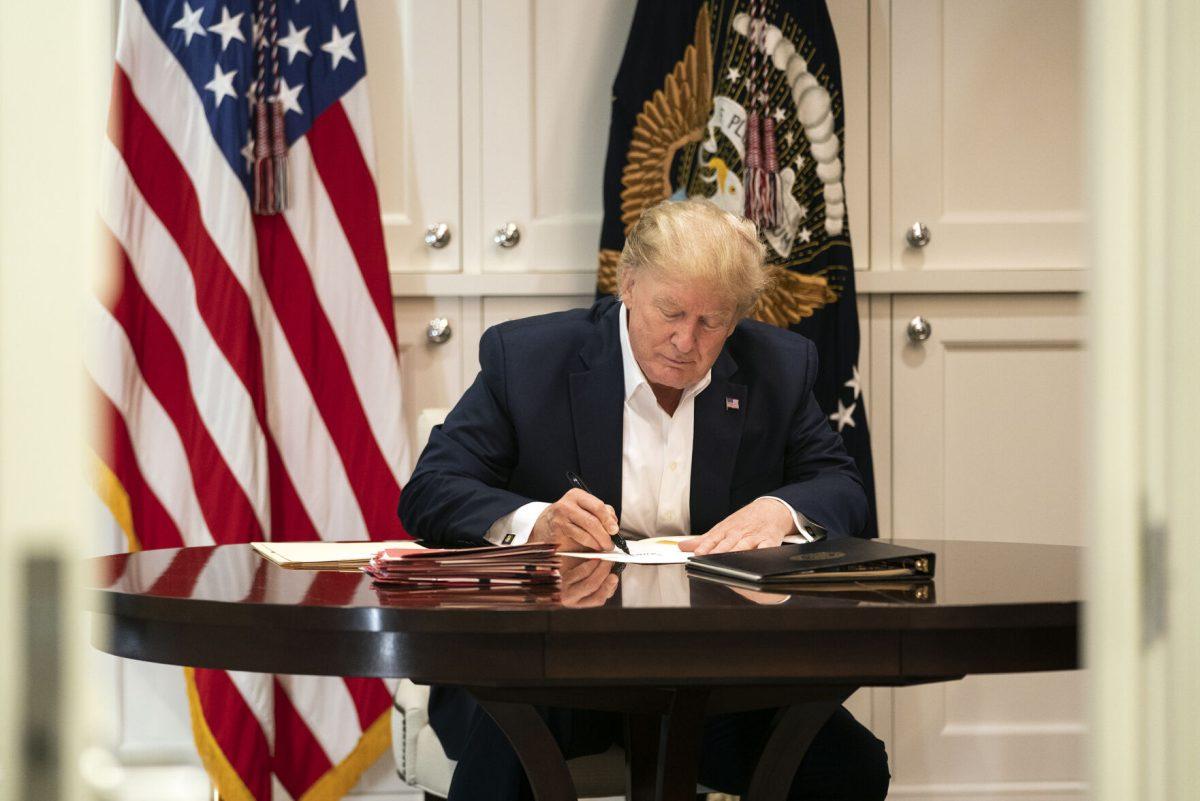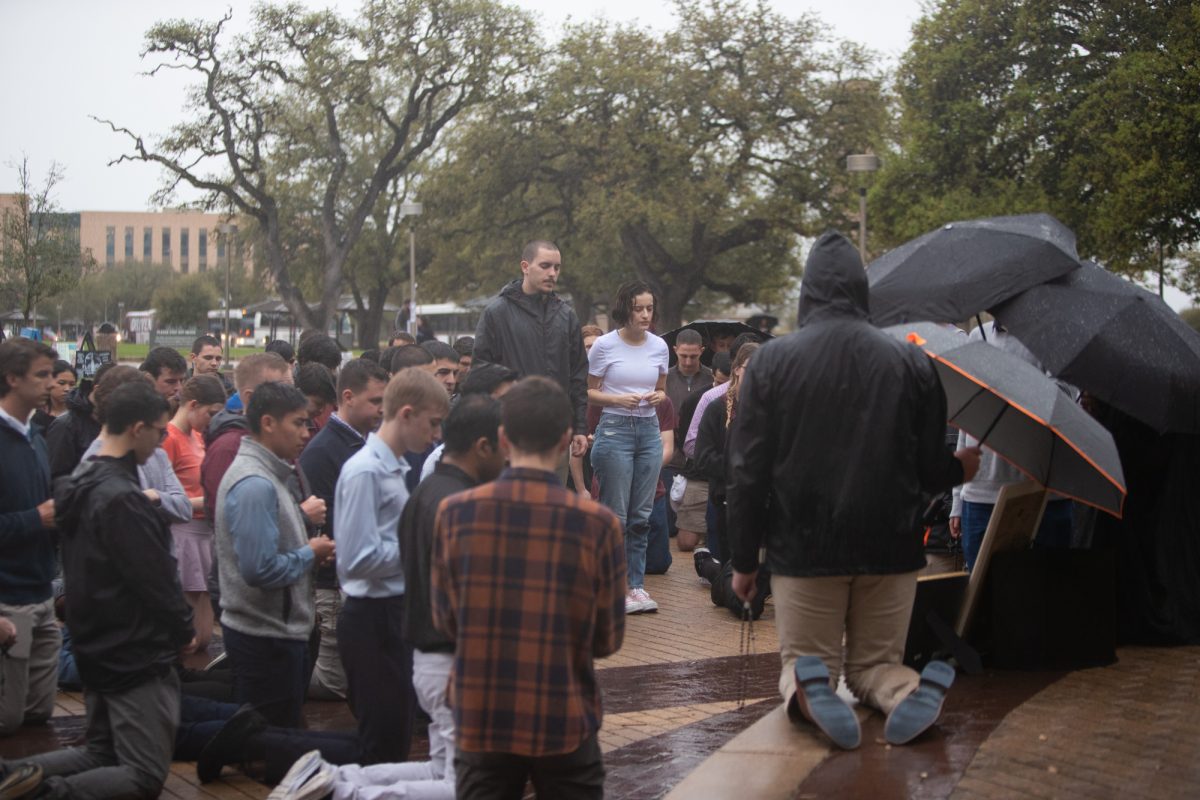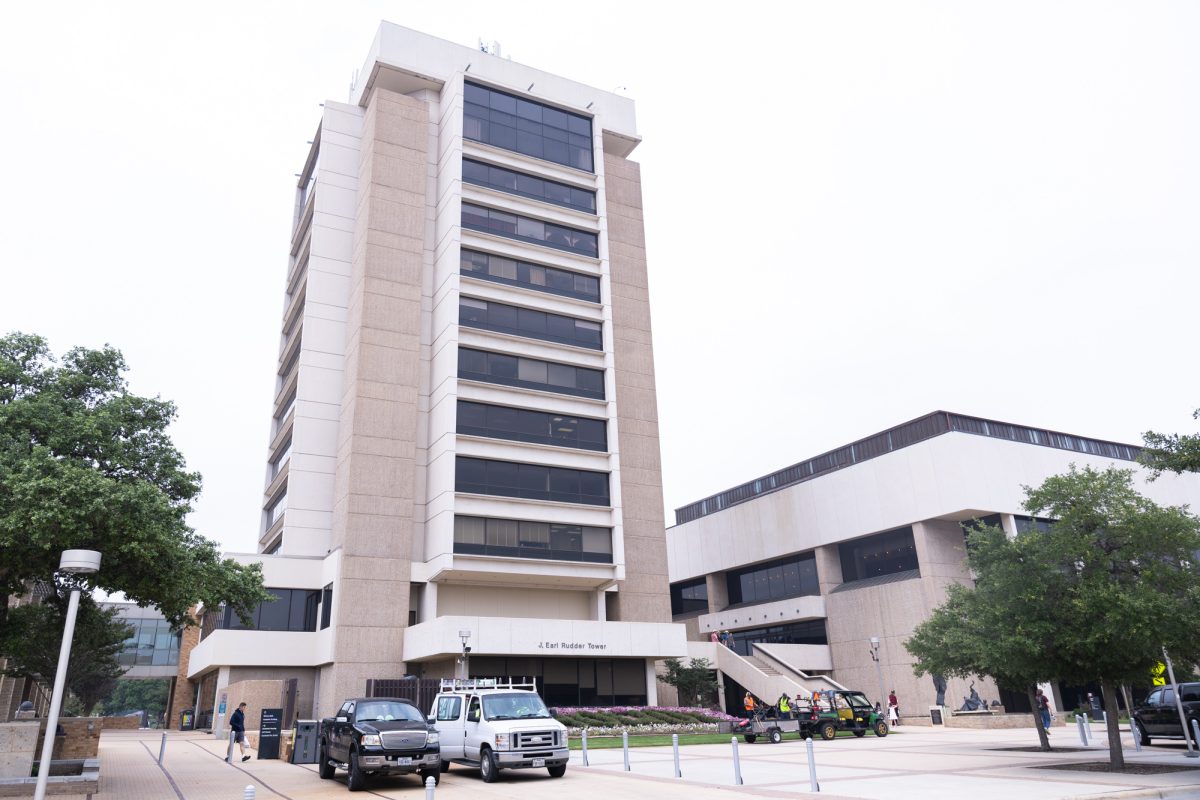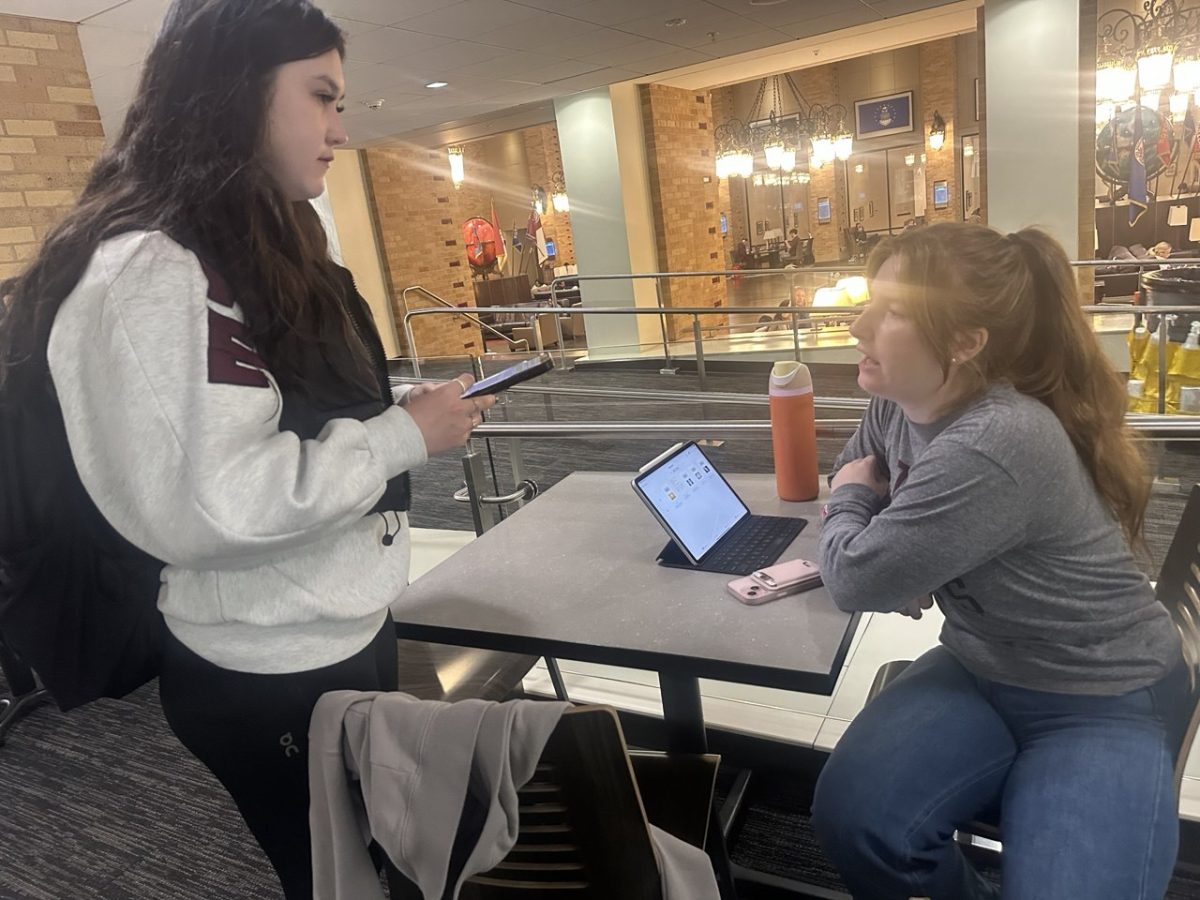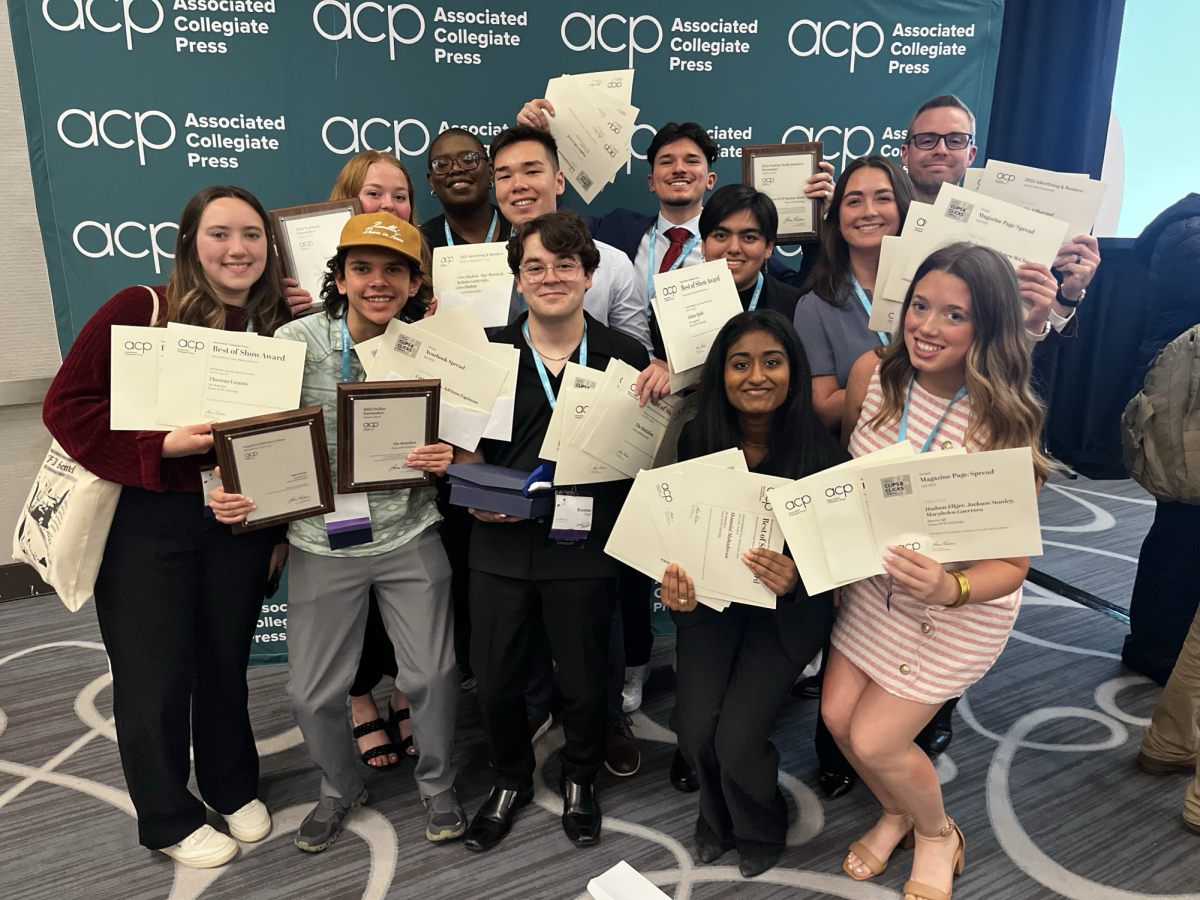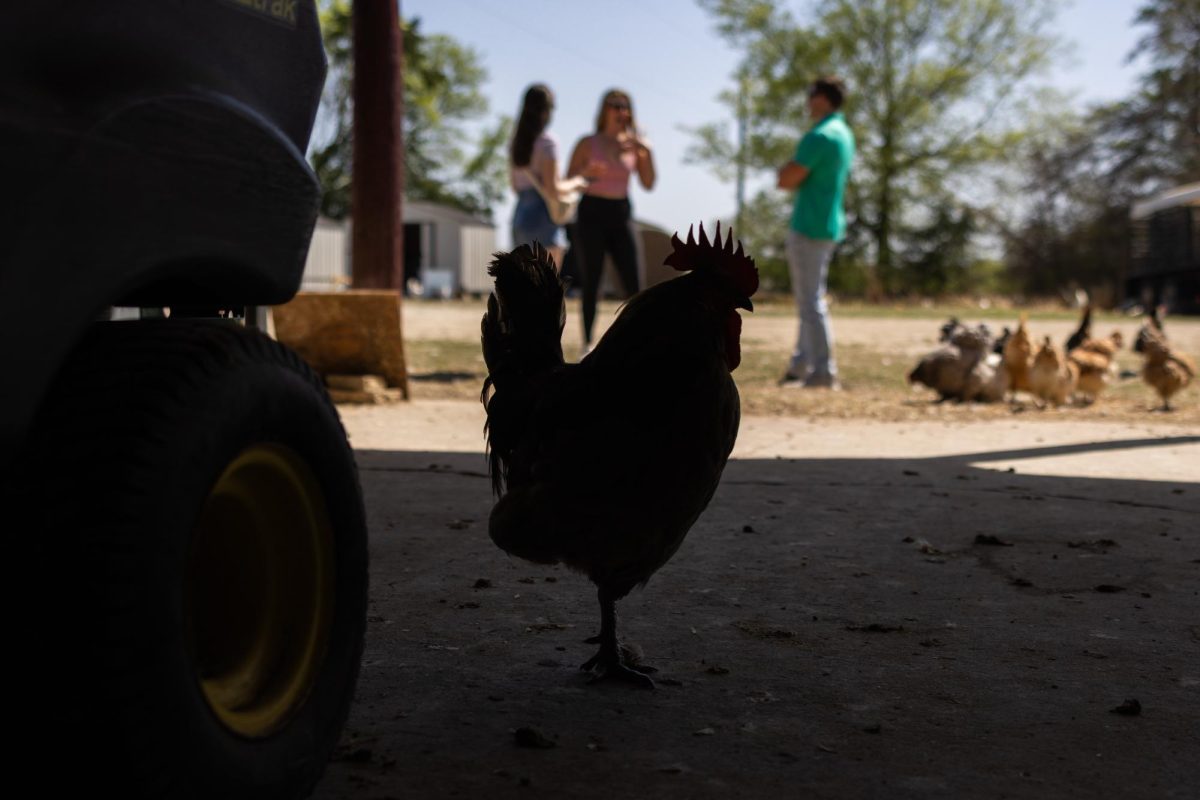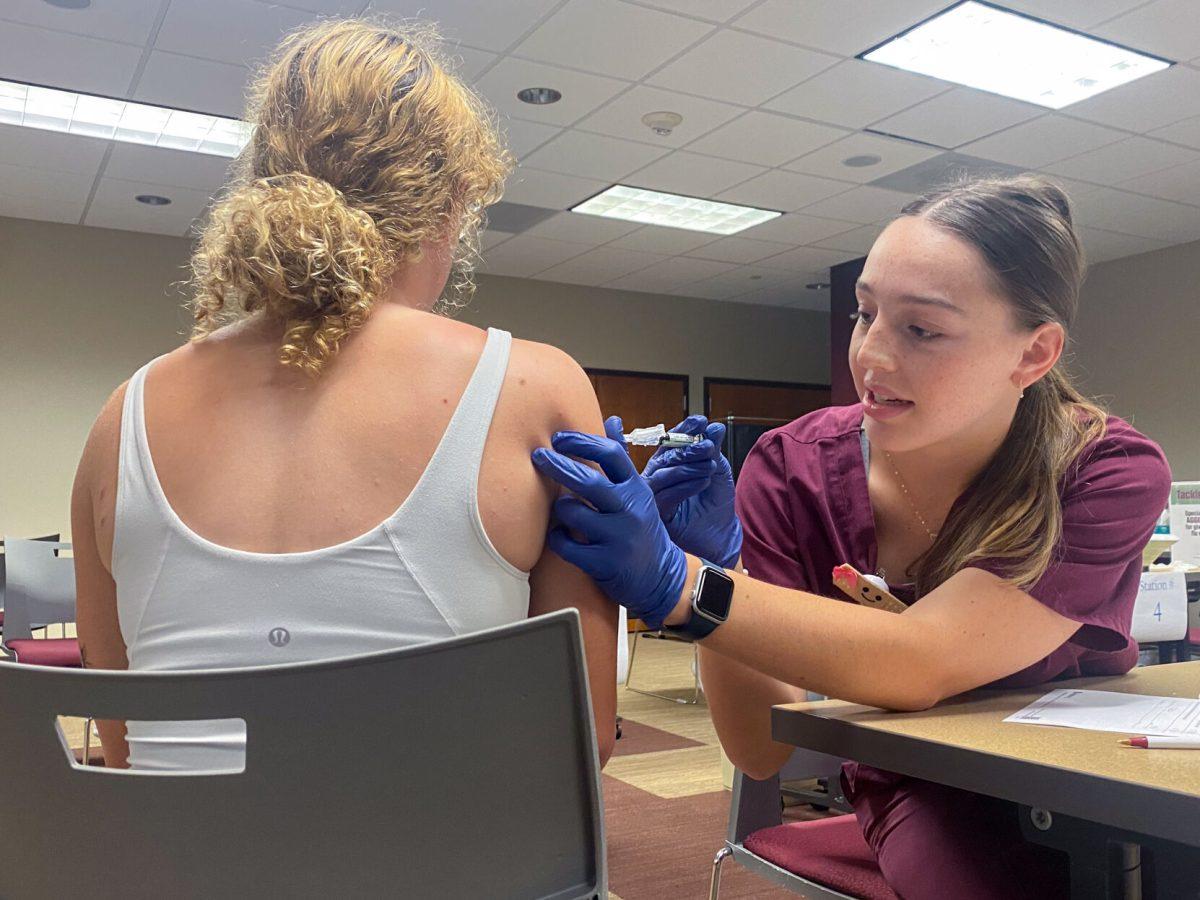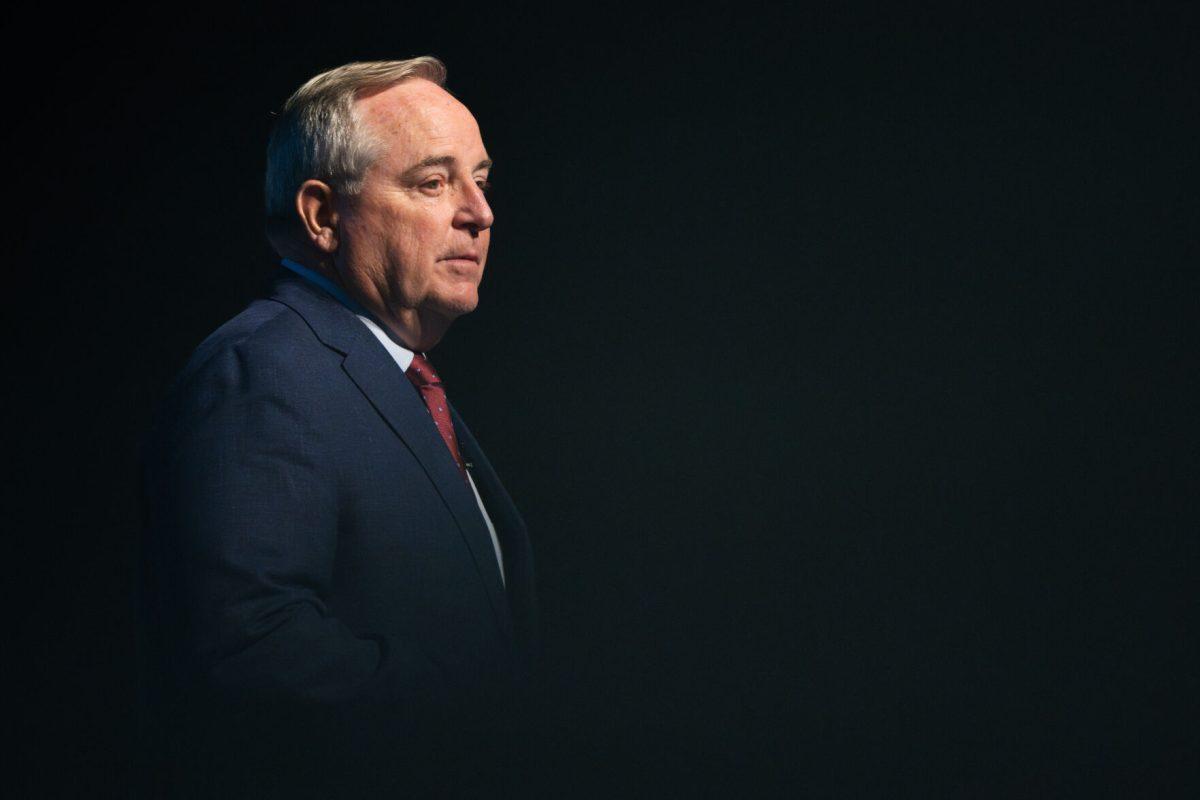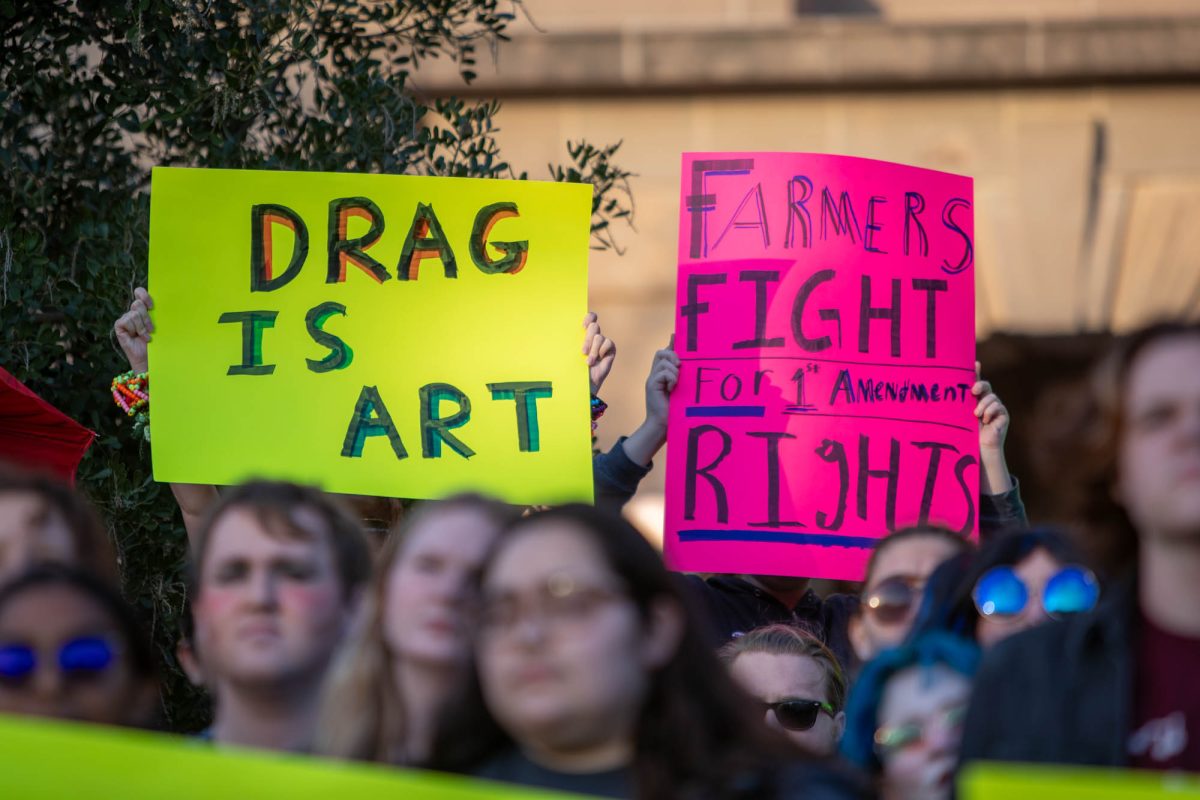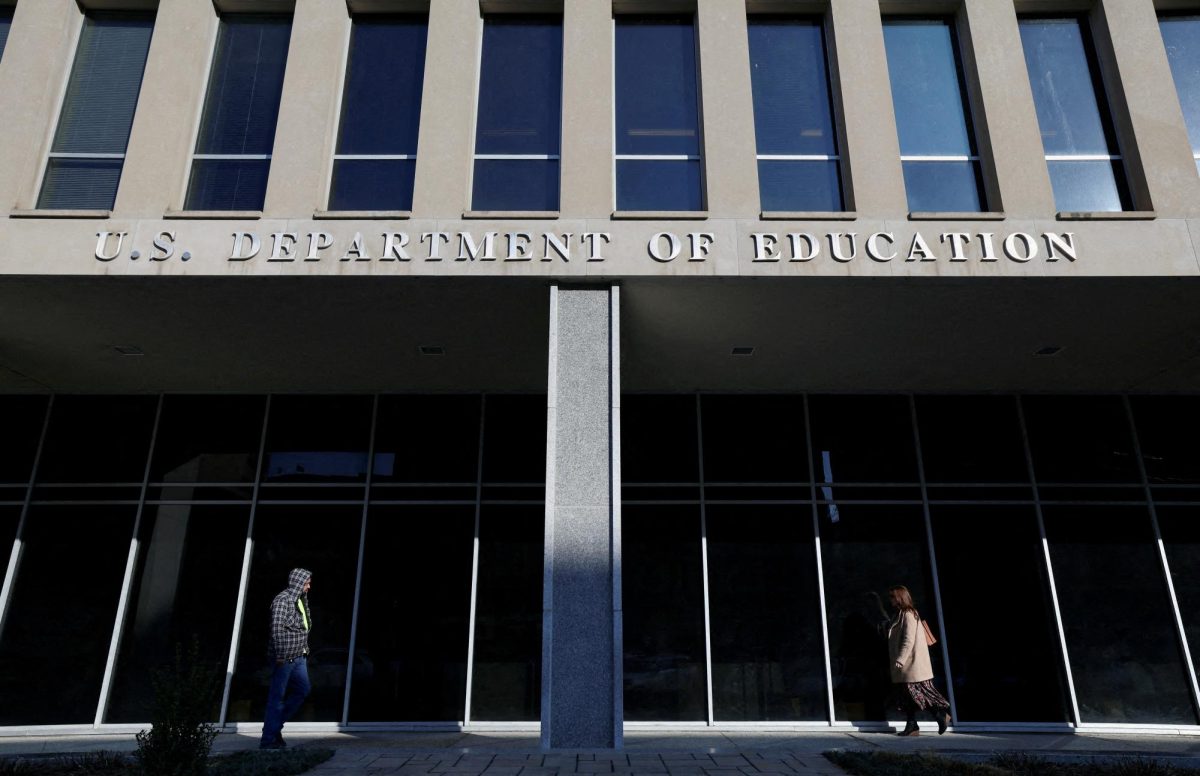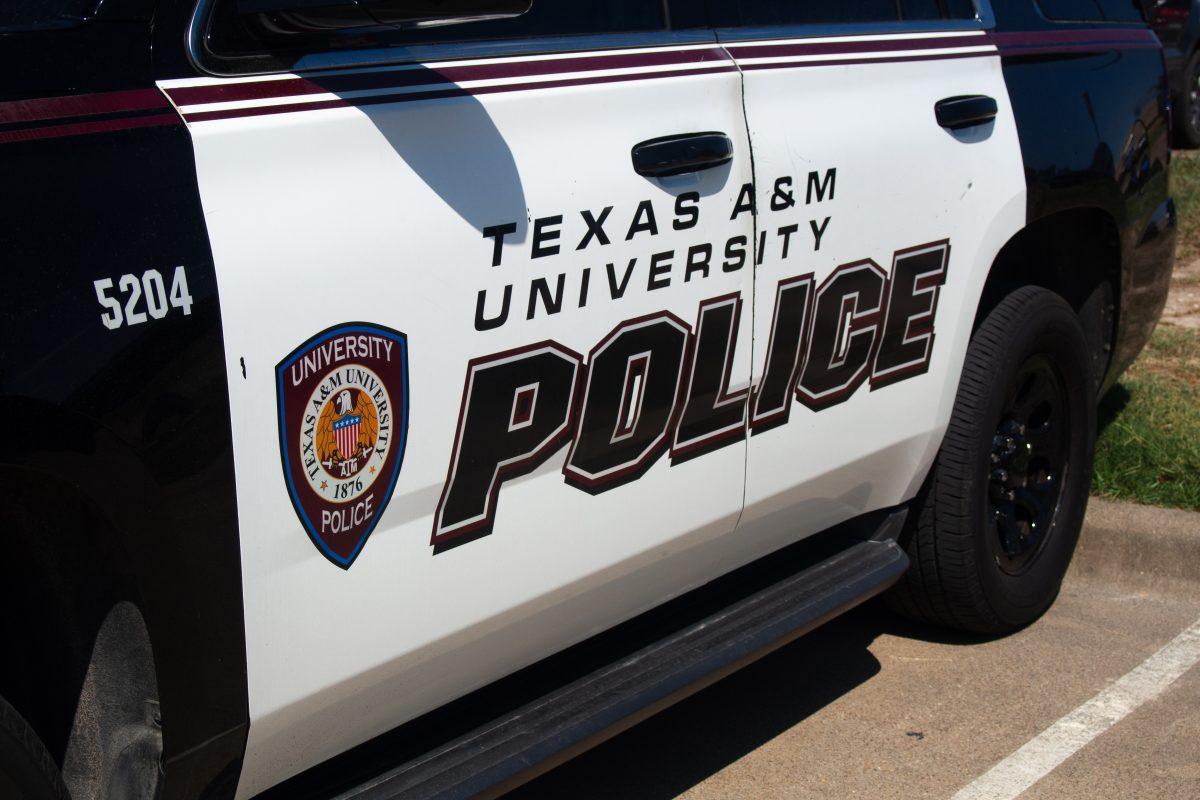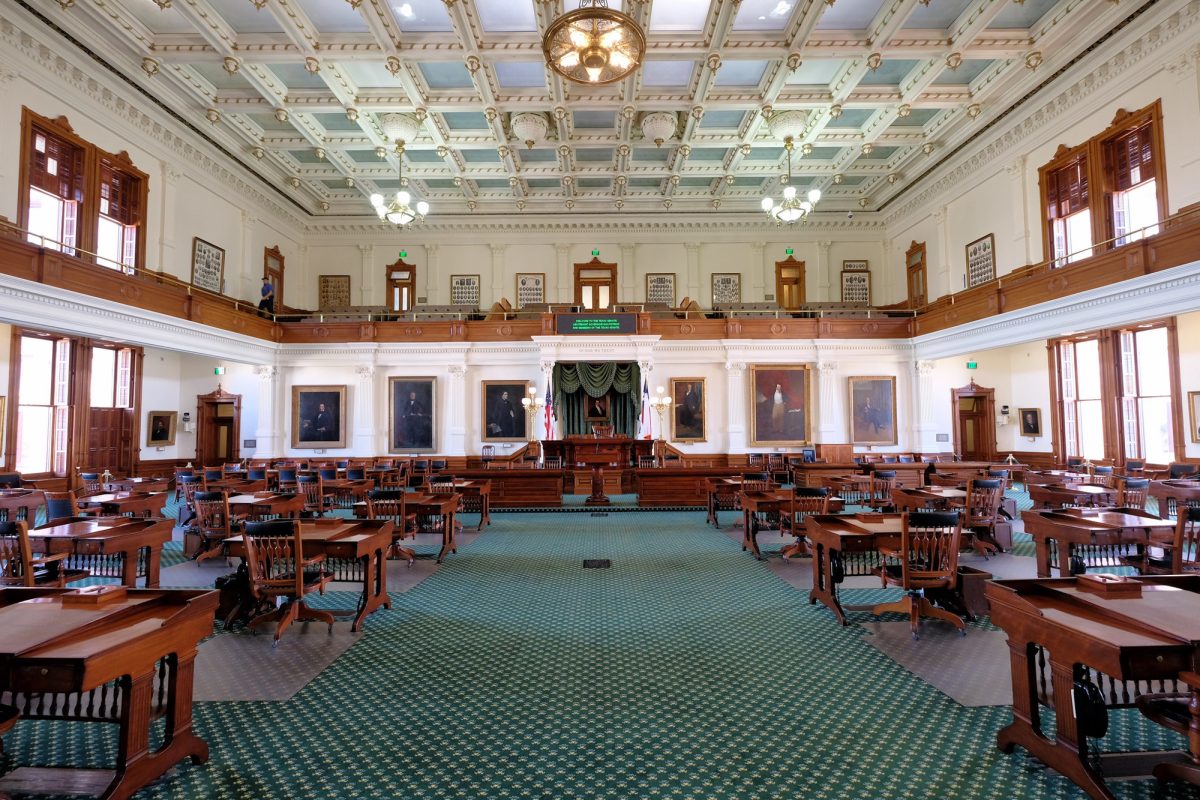Under President Donald Trump’s administration, universities are facing economic and reform pressures and uncertainty over education and the cost of living. College students could feel similar impacts.
Professor in the Public Service and Administration Department Lori Taylor, Ph.D, said extensive research has been done on the impact of the Trump administration’s 2018 and 2019 tariffs as well as the President’s current tariff proposals.
“If they impose a 25% tariff on products from China, then the price of those products will go up 25% in the United States,” Taylor said. “There’s also some evidence of trade diversion last time, which was we put a tariff on products from China so China sells their products to Germany, and then Germany sells products to us, so it wouldn’t be Chinese electronics, it would be German electronics instead. This led to a complete passthrough of any tariffs to the U.S. consumer. ”
Taylor said low-income households tend to be hit hard because of tariffs on food, apparel, vehicles or electronics. Since most are at the start of their careers, college students are also more likely to consume higher-taxed products, Taylor said.
“[Students are] borrowing against their future earnings and living on student loans or living on support from parents,” Taylor said. “All of those things tend to leave college students at below-average income.”
If there are changes to funding and Trump shrinks the federal workforce, it will change job searches in Washington, D.C., Taylor said.
“Certain kinds of defense-oriented homeland security and border security jobs are unlikely to be at risk, but social program and educational sector jobs that are federally funded are more likely to be the focus of the Trump administration’s efforts to realign federal spending with their priorities,” Taylor said.
Professor Matthew Haydon, Ph.D., said the Trump administration will try to streamline how funding is allocated with respect to federal student aid in administering loans or grants to students.
There were issues with FAFSA when students were applying for federal aid during the Biden administration, Haydon said. Students felt uncertain when they would get their aid due to frequent changes in the rules. As such, students ended up feeling discouraged to apply for federal aid because they weren’t sure when they would get any funds for their education.
Haydon said Trump’s “no tax on tips” — which would exempt tip-based income from federal income tax — could additionally impact students since most students work service jobs that involve tips as a source of income. Haydon said that Trump’s cabinet nominees, especially his selection to lead the Department of Education, Linda McMahon, must be confirmed before the effects will be known.
“Once we get through Linda McMahon’s confirmation hearings, which may discuss college accreditation along with other elements of higher education, we could get more insight into what that will look like,” Haydon said.
President of Texas Aggie Democrats and nuclear engineering senior Kevin Pierce said reduced federal funding on research could negatively impact employment and research advancements.
“A lot of research that is federally funded that goes into A&M contributes significantly to the US population,” Pierce said. “If a lot of those opportunities are taken away, not only will that hurt people overall, but we really need this research to get ahead of other countries.”
Pierce said cuts to federal funding will have significant impacts on students who want to work on federally funded projects in the future.
“NASA does research through A&M for their trip to Mars,” Pierce said. “The NRC also does a lot of research through A&M, specifically with nuclear reactor models. Cuts will hurt a lot of students with regards to job opportunities.”
Pierce said the average student will face high housing costs with private equity firms buying up housing, which Trump has not addressed.
“A&M is one of the worst places for this issue to happen,” Pierce said. “[Trump’s] solution was to build on federal land and deport illegal immigrants. Neither of those two things will fix the housing problem as illegal immigrants aren’t able to buy houses and there is no federal land around here that he can build on, unless you want to destroy a National Park or something.”
Pierce said A&M has already had to get rid of its Diversity, Equity and Inclusion programs associated with the university.
“We had very good DEI programs and I think it helped a lot more students feel more welcome here and now almost all those programs are gone,” Pierce said. “All those organizations being removed might make students feel a lot more out of place when they get here since this school has a majority white population.”
President of Texas A&M College Republicans and history and political science senior Tyner Harris said Trump’s economic policies are focused on the idea there is a lot wrong in the American education system.
“Trump’s general idea, and the whole Republican party’s general idea, is to try new fixes,” Harris said. “It’s not sure any one of them is gonna fix the problem but we can’t let the current system go on like this.”
Harris said bringing education back to the states could benefit students because it localizes education more.
“It’s not reliant on what someone in D.C. wants to teach you,” Harris said. “It would be somewhat laid out by state governments. 50 different systems trying to figure out a solution is better than one monolithic system trying to create solutions.”
Harris said the one concern he has is that in comparison to the rest of the world, the average student in the United States is behind.
“If we’re gonna compete on a geopolitical scale and we want a healthy democracy, we’re going to need educated and intelligent people,” Harris said. “I think one of the biggest detriments to any democracy, to any republic, is when people aren’t educated well enough. Right now the education system is not doing its job, and I believe Trump’s changes will fix a lot of the issues like high costs and bureaucratic bloat.”




